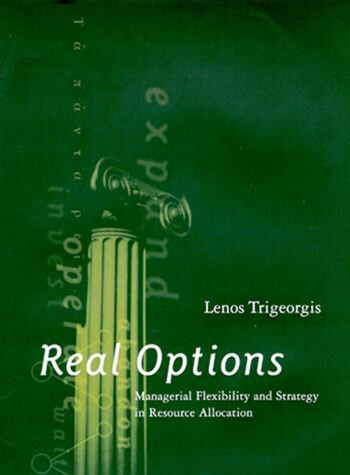The MIT Press
2 total works
The authors first discuss prerequisite concepts and tools from basic game theory, industrial organization, and real options analysis, and then present the new approach in discrete time and later in continuous time. Their presentation of continuous-time option games is the first systematic coverage of the topic and fills a significant gap in the existing literature.
Competitive Strategy provides a rigorous yet pragmatic and intuitive approach to strategy formulation. It synthesizes research in the areas of strategy, economics, and finance in a way that is accessible to readers not necessarily expert in the various fields involved.
In the 1970s and the 1980s, developments in the valuation of capital-investment opportunities based on options pricing revolutionized capital budgeting. Managerial flexibility to adapt and revise future decisions in order to capitalize on favorable future opportunities or to limit losses has proven vital to long-term corporate success in an uncertain and changing marketplace. In this book Lenos Trigeorgis, who has helped shape the field of real options, brings together a wealth of previously scattered knowledge and research on the new flexibility in corporate resource allocation and in the evaluation of investment alternatives brought about by the shift from static cash-flow approaches to the more dynamic paradigm of real options—an approach that incorporates decisions on whether to defer, expand, contract, abandon, switch use, or otherwise alter a capital investment. Comprehensive in scope, Real Options reviews current techniques of capital budgeting and details an approach (based on the pricing of options) that provides a means of quantifying the elusive elements of managerial flexibility in the face of unexpected changes in the market. Also discussed are the strategic value of new technology, project interdependence, and competitive interaction. The ability to value real options has so dramatically altered the way in which corporate resources are allocated that future textbooks on capital budgeting will bear little resemblance to those of even the recent past. Real Options is a pioneer in this area, coupling a coherent picture of how option theory is used with practical insights in into real-world applications.

